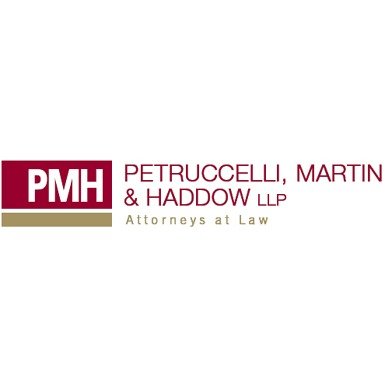Best Debt Capital Markets Lawyers in Maine
Share your needs with us, get contacted by law firms.
Free. Takes 2 min.
Or refine your search by selecting a city:
List of the best lawyers in Maine, United States
About Debt Capital Markets Law in Maine, United States
Debt Capital Markets (DCM) refer to the financial markets where organizations, including corporations, municipalities, and government entities, raise funding by issuing debt instruments such as bonds, debentures, and notes. In Maine, debt capital markets play a significant role in supporting economic growth and financing critical projects, from infrastructure developments to business expansions. The legal landscape surrounding these markets is complex and involves federal securities regulations, state-specific legislation, and local practices that ensure transparency, investor protection, and the smooth operation of markets.
Why You May Need a Lawyer
Engaging in debt capital markets transactions often requires navigating a maze of legal requirements and regulatory hurdles. Common scenarios where legal expertise is crucial include:
- Issuing bonds or other debt instruments as a municipality or corporation
- Structuring public or private offerings to comply with federal and state securities laws
- Drafting offering documents and disclosure statements
- Negotiating the terms of debt agreements and covenants
- Addressing tax implications of debt issuance or restructuring
- Assisting with post-issuance compliance and disclosures
- Responding to regulatory investigations or enforcement actions
Legal assistance helps ensure all transactions are compliant, reduces the risk of costly errors, and protects all parties’ interests throughout the debt issuance process.
Local Laws Overview
Maine’s legal framework for debt capital markets is shaped by a combination of federal securities laws, such as the Securities Act of 1933 and the Securities Exchange Act of 1934, as well as state laws and regulations. Key aspects specific to Maine include:
- The Maine Office of Securities oversees state securities regulation and investor protection for offerings within the state
- Municipal and governmental debt issuance in Maine must adhere to local statutes, including Title 30-A of the Maine Revised Statutes, which covers municipal bonds and public debt
- Private and public offerings in Maine are subject to blue sky laws intended to prevent securities fraud and require registration or qualifying exemptions
- There are state-specific rules on disclosure, registration, and ongoing reporting for entities issuing debt within Maine
- Tax exemption status for certain bonds, such as municipal bonds, is governed by both federal and state tax codes, which Maine legal counsel can help navigate
Any debt transaction within Maine must be carefully structured to comply with these overlapping regulatory regimes.
Frequently Asked Questions
What types of entities can issue debt in Maine?
Corporations, municipalities, government agencies, and some qualifying nonprofits can issue debt in Maine, subject to state and federal regulations.
What are "blue sky laws" in relation to debt capital markets?
Blue sky laws are state-level securities regulations designed to protect investors from fraud. In Maine, these laws require registration or qualifying for an exemption before offering debt securities to investors within the state.
How does the Maine Office of Securities regulate debt offerings?
The Maine Office of Securities reviews filings, polices securities fraud, registers offerings, and oversees compliance for debt and other security offerings in Maine.
Do municipal bonds issued in Maine always have tax-exempt status?
Not always. While many municipal bonds offer a federal and state tax exemption, eligibility depends on how the bond proceeds are used and other conditions set by the IRS and the State of Maine.
What disclosure requirements must issuers meet?
Issuers must provide detailed information about financials, risks, and use of proceeds in offering documents, and comply with both federal and Maine-specific disclosure regulations to protect investors.
How are private placements of debt handled in Maine?
Private placements are typically exempt from full registration but must meet certain disclosure and qualification requirements, and often rely on federal Regulation D as well as Maine exemptions.
What role does due diligence play in debt offerings?
Due diligence ensures all material facts are disclosed, helps identify risks, and is critical for legal compliance; both offerors and their advisors are responsible for thorough checks.
Can individuals invest in debt securities in Maine?
Yes, subject to offering type and eligibility rules. Certain investments may be limited to accredited or institutional investors, depending on the structure of the offering.
What happens in the event of a default on Maine-issued debt?
Default triggers the enforcement of covenants or remedies outlined in the debt documents, which may include negotiation, workout arrangements, or legal proceedings. Maine law and the terms of the issue will govern the process.
When should I consult a lawyer for a debt capital market transaction?
It is best to consult a lawyer as early as possible, ideally before structuring a transaction or drafting offering materials. Early advice can help avoid compliance pitfalls and costly errors.
Additional Resources
If you need more information or assistance, the following resources can be valuable:
- Maine Office of Securities: Regulates and provides guidance on securities offerings within Maine
- Municipal Securities Rulemaking Board (MSRB): Offers investor education and regulatory guidance for municipal bonds
- U.S. Securities and Exchange Commission (SEC): Oversees federal securities law compliance for public and private offerings
- American Bar Association - Section of Business Law: Provides educational materials and professional connections
- Local Maine law firms with experience in securities and municipal finance
Next Steps
If you are considering a debt capital market transaction or have concerns about an existing investment or issuance, consider the following steps:
- Document your objectives, transaction details, and any communications to date
- Identify whether your transaction involves federal or only Maine state law, or both
- Contact a Maine attorney specializing in debt capital markets, securities law, or municipal finance to review your plans or issues
- Schedule a consultation to discuss compliance, risk management, and documentation needs
- Make use of publicly available resources and regulatory bodies to educate yourself further while your matter is pending
Professional legal guidance is the best way to understand your rights, obligations, and best practices in Maine’s debt capital markets.
Lawzana helps you find the best lawyers and law firms in Maine through a curated and pre-screened list of qualified legal professionals. Our platform offers rankings and detailed profiles of attorneys and law firms, allowing you to compare based on practice areas, including Debt Capital Markets, experience, and client feedback.
Each profile includes a description of the firm's areas of practice, client reviews, team members and partners, year of establishment, spoken languages, office locations, contact information, social media presence, and any published articles or resources. Most firms on our platform speak English and are experienced in both local and international legal matters.
Get a quote from top-rated law firms in Maine, United States — quickly, securely, and without unnecessary hassle.
Disclaimer:
The information provided on this page is for general informational purposes only and does not constitute legal advice. While we strive to ensure the accuracy and relevance of the content, legal information may change over time, and interpretations of the law can vary. You should always consult with a qualified legal professional for advice specific to your situation.
We disclaim all liability for actions taken or not taken based on the content of this page. If you believe any information is incorrect or outdated, please contact us, and we will review and update it where appropriate.
Browse debt capital markets law firms by city in Maine
Refine your search by selecting a city.












